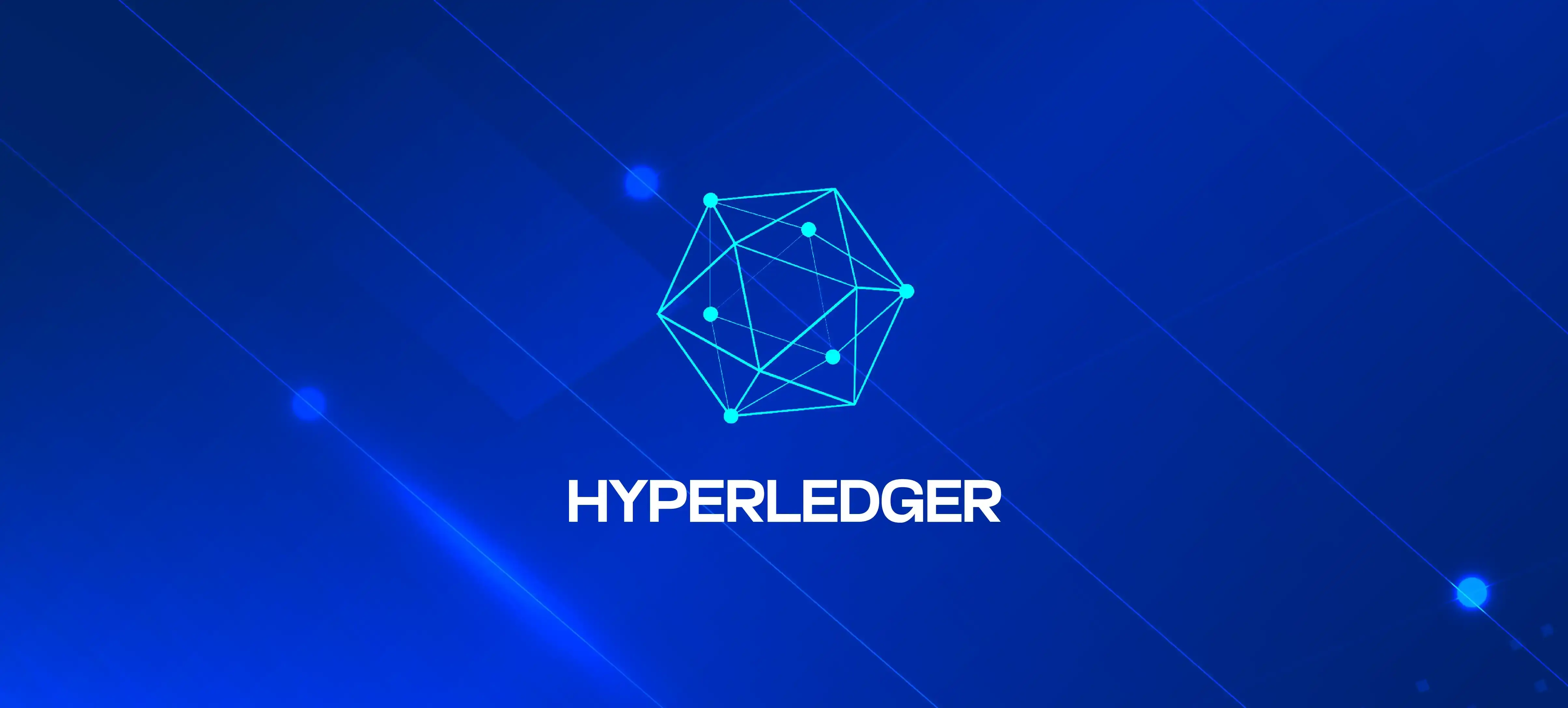
Enterprise Blockchain Development: Is Your Business Being Left Behind?
Table of Contents
A misplaced container can cost millions in international shipping. This nightmare scenario kept the logistics giant, Maersk, up at night. Botched paperwork, delayed updates, and a lack of transparency haunted their operations, until they decided to try enterprise blockchain development. With a custom-built blockchain platform, Maersk’s document sharing became as smooth as butter. They became the best at real-time asset tracking, and lowered costly inefficiencies. Are you witnessing the same level of transformation in your industry? Is your business being left behind?
What is Enterprise Blockchain?
Picture enterprise blockchain as a super-secure shared digital ledger explicitly designed for business environments. Unlike those open-to-anyone public blockchains (like the ones behind Bitcoin), enterprise blockchains are permissioned. This means only authorized participants can join the network. It’s like an exclusive club with strict membership rules.
Main characteristics of enterprise blockchains
Permissioned
Imagine a Google Doc, but way more secure and with access control. Companies are invited to join the network in an enterprise blockchain, and each participant has a specific role. This ensures that only authorized users can see and interact with the data. It’s akin to assigning edit or view-only permissions on a document – but on a much more sophisticated level.
Privacy
With enterprise blockchain, you have granular control over what data is visible to whom. All members don’t need to see everything - For example, a supply chain where manufacturers can see details about raw materials, but retailers only see the information of the finished product. Businesses will be glad by this since they can share data securely and efficiently without compromising information.
Scalability
Massive amounts of data can wear regular databases. Enterprise blockchains are built to handle large volumes of transactions smoothly. It’s like a superhighway for data, designed to handle constant flow of information without traffic jams.
Why Businesses are Flocking Towards Enterprise Blockchain
We know that enterprise blockchain offers control and security, but what's the real draw for businesses?
Here's where it gets exciting:
Enhanced Security and Trust
Blockchain’s tamper-proof design can create unbreakable records, making fraud and errors less likely. Businesses love that since it builds trust with their users.
Increased Transparency and Traceability
Ever tried tracking a product's journey from factory to store? Blockchain makes it a breeze. This transparency is golden in industries like supply chain and healthcare.
Streamlined Processes and Automation
Smart contracts, essentially mini-programs living on the blockchain, can automate tasks and agreements. This can free up time and resources like you wouldn't believe.
Cost Reduction and Efficiency Gains
Imagine cutting out intermediaries and speeding up processes—yes, blockchain delivers lower costs and greater efficiency.
Popular Use Cases for Enterprise Blockchain
Core Utilities
Let's talk specifics – here's where enterprise blockchain shines:
Supply Chain Management
Track goods from origin to consumer, ensuring authenticity and visibility. Here’s how enterprises are using blockchain:
-
Walmart has partnered with IBM to track mangoes on their blockchain platform. This allows them to trace the origin of a single mango within seconds, facilitating faster recalls in case of contamination.
-
Richemont, a consortium of luxury brands like Cartier and Chloe, uses blockchain to verify the authenticity of their products. This combats counterfeiting and builds trust with customers.
-
Pfizer is leveraging blockchain to track the temperature and location of pharmaceuticals during transport. This ensures they maintain optimal conditions and prevents the circulation of counterfeit drugs.
-
De Beers, a leading diamond producer, uses blockchain to track diamonds throughout their supply chain. This promotes ethical sourcing and assures consumers that their diamonds are conflict-free.
-
Stella McCartney has partnered with a blockchain platform to track the sustainable sourcing of materials in her fashion line. This allows customers to see the origin of their clothes and make informed purchasing decisions.
Trade Finance
Here are a few successful examples how companies are using blockchain to streamline financial transactions, reduce paperwork, and minimize risks:
-
Trade finance giant Commerzbank partnered with IBM to develop a blockchain trade finance platform. This platform cuts processing times from days to hours, significantly reducing costs and paperwork for businesses.
-
Bank of America teamed up with Ripple to pilot a blockchain-based payments system for international transactions. This system facilitates faster and more transparent cross-border payments, improving efficiency for businesses and their customers.
-
HSBC is leveraging blockchain to streamline trade finance for small and medium-sized businesses (SMBs). Their blockchain platform allows SMEs to access financing more quickly and efficiently, boosting their growth potential.
-
ABN AMRO, a Dutch bank, uses blockchain to automate trade finance processes for their corporate clients. This automation reduces errors and streamlines operations, saving businesses both time and money.
-
Standard Chartered Bank is collaborating with other financial institutions to develop a blockchain platform for trade finance. This initiative aims to improve transparency and traceability in trade finance, mitigating risks and fostering trust between trading partners.
InvoBlox follows a rigorous approach in building enterprise blockchain solutions. We guide clients through platform selection, smart contract development, integration, and security. Our industry experience helps businesses with real world utilities of blockchain technology. Contact [email protected] today!
Additional Utilities
Identity Management
Create secure, verifiable digital identities, smoothing processes like customer onboarding. Enterprise blockchain enables the creation of tamper-resistant digital identities that are securely owned and controlled by individuals. This streamlines processes like customer onboarding (KYC), combats identity theft, and improves efficiency.
Industries Disrupted
-
Banking: Blockchain-backed identity verification reduces paperwork and speeds up customer onboarding. This lowers operational costs and improves customer experience.
-
Government: Secure digital identities on blockchain can streamline voting procedures, welfare disbursement, and issuance of official documents (passports, licenses), reducing fraud and bureaucracy.
-
E-commerce: Blockchain-based identities combat online fraud by providing trusted customer verification. This enhances transaction security and builds user trust.
Successful Companies
-
Civic provides a blockchain-based identity verification platform that gives users control over their personal information, increasing privacy and security.
-
Evernym offers self-sovereign identity solutions built on blockchain, enabling businesses and individuals to manage their digital identities with enhanced security and transparency.
-
ShoCard: A pioneer in blockchain-based identity management, ShoCard offers solutions for digital identity verification, reducing fraud, and simplifying online transactions.
-
uPort: Developed on the Ethereum blockchain, uPort enables individuals to securely manage their digital identities and control the sharing of personal information.
-
SelfKey: Focuses on self-sovereign identity, empowering users with full ownership over their personal data. SelfKey's blockchain-based solutions enhance privacy and streamline online processes.
Healthcare Data Management
Securely manage sensitive patient records while maintaining privacy and compliance.
Blockchain offers a secure and shared ledger for medical records. This facilitates the exchange of patient data across healthcare providers, researchers, and patients themselves – all while maintaining privacy and compliance.
Industries Disrupted
-
Clinical Trials: Blockchain enables the secure tracking of patient data and trial processes, ensuring data integrity and accelerating drug development timelines.
-
Insurance: Blockchain-based health records can streamline claim processing by providing a single, verified source of patient information, reducing fraud and administrative costs.
-
Personalized Medicine: Patients can own and manage their own health data on blockchain, securely sharing it with chosen healthcare providers for tailored treatment plans.
Successful Companies
-
BurstIQ is a blockchain-based platform enabling secure storage and exchange of health data, giving patients control over their information and accelerating research.
-
Medicalchain uses blockchain to create a decentralized network for storing electronic health records, making secure and efficient patient data sharing possible.
-
Factom Harmony: Specializes in securely storing and managing healthcare data on blockchain. Their solutions ensure compliance with regulations and facilitate efficient health record sharing.
-
Solve.Care: This company connects patients, doctors, insurance companies, and researchers through a blockchain-based platform, streamlining healthcare administration and empowering patients.
-
Nebula Genomics: Enables individuals to own and securely share their genomic data with researchers, helping accelerate scientific discovery while maintaining privacy and ethical practices.
Regulatory Compliance
Track and automatically prove regulation compliance, easing audit burdens.
Blockchain's immutability and transparency are perfect for tracking compliance-related data. Automated reporting and auditing become possible, saving time and effort for businesses while reducing risk.
Industries Disrupted
-
Financial Services: Blockchain can streamline Know-Your-Customer (KYC) and Anti-Money Laundering (AML) processes, making compliance reporting more transparent and easier for audit trails.
-
Supply Chains: Blockchain provides proof of ethical sourcing, origin, environmental impact, and regulatory compliance for products, helping companies meet sustainability and social responsibility standards.
-
Pharmaceuticals: Blockchain can track drug temperature, ingredients, and adherence to regulations throughout manufacturing and distribution. This helps combat counterfeit medicine and ensures quality control.
Successful Companies
-
The FDA is exploring blockchain use cases for drug supply chain integrity, using this technology to trace pharmaceuticals from manufacturers to end users, ensuring compliance and combating counterfeit products.
-
TradeLens is a blockchain-based shipping platform developed by IBM and Maersk that tracks shipping containers in real-time, automating compliance checks and documentation along the way.
-
Chainalysis: Provides blockchain analysis tools to financial institutions, law enforcement agencies, and businesses. Their solutions help track cryptocurrency transactions and support compliance with AML and KYC regulations.
-
Everledger: Leverages blockchain to create a digital registry of assets like diamonds and luxury goods. They focus on supply chain transparency, ethical sourcing, and combating counterfeits.
-
ComplyAdvantage: Offers blockchain-powered compliance solutions for banks and financial institutions. Their platform helps automate sanction checks, transaction monitoring, and regulatory reporting.
Building an Enterprise Blockchain Solution: Key Considerations
Building a robust enterprise blockchain solution isn't just about the tech - it's a strategic decision. Let's break down the most critical aspects:
1. Choosing the Right Platform: Start with the Problem
-
Problem Definition is Key: Don't choose a platform just because it's popular. Clearly define the specific business problems you're solving. Are you focused on supply chain traceability? Secure data sharing? Trade finance efficiency? Your problem dictates the ideal platform.
-
Public vs. Private vs. Consortium: Public blockchains (e.g., Ethereum) are great for transparency but may not meet enterprise privacy or performance needs. Private blockchains (like Hyperledger Fabric) give you full control, while consortium models (like R3 Corda) offer a blend of shared infrastructure and privacy.
-
Example: A private blockchain like Hyperledger Fabric would be ideal if you're managing sensitive healthcare data. It allows you to define granular access controls, ensuring data remains accessible only to authorized entities.
2. Smart Contract Development: Automating the Rules
-
Programming Languages: Smart contracts can be written in languages like Solidity (for Ethereum) or Chaincode (for Hyperledger Fabric). Make sure you have developers with the right expertise on board.
-
Logic, Logic, Logic: Think of smart contracts as unbreakable digital contracts. If product X arrives at point Y by date Z, automatically trigger payment. This logic is the core of your blockchain's value.
-
Security Audits are NOT Optional: Smart contracts handle assets and sensitive data. Third-party audits before deployment are a must to identify and eliminate vulnerabilities.
3. Integration with Existing Systems: The Bridge to Adoption
-
Don't Reinvent the Wheel: Your blockchain isn't an island. It needs to talk to databases, accounting systems, etc. Plan integration points using APIs and middleware tools.
-
Example: If your supply chain system is built on SAP, your blockchain needs an API layer to pull order data from SAP and send updates back. This ensures real-time visibility across the entire process.
4. Security and Compliance: Trust is Everything
-
Encryption is Your Friend: Sensitive data on the blockchain? Encryption is a must, both at rest and in transit. Look into hardware security modules (HSMs) for extra protection.
-
Regulations Matter: Industries like finance and healthcare have strict compliance rules. Choose a platform and design an architecture that adheres to relevant regulations (e.g., GDPR, HIPAA).
-
Access Controls: Define who can access data, who can make changes, and how. Role-based permission systems on platforms like Hyperledger Fabric are helpful here.
The Future of Enterprise Blockchain
While enterprise blockchain is already delivering real-world value, its potential is far from fully realized. Here's a glimpse into what the future holds:
Cross-Industry Collaboration: Breaking Down Silos
Imagine a future where competitors collaborate on a shared blockchain infrastructure to streamline processes, reduce friction, and track assets across industry boundaries. For instance, multiple shipping companies sharing a blockchain for real-time container tracking would optimize routes and reduce delays.
For smooth collaboration, we need standards for how different blockchains communicate and exchange data. Initiatives like the InterWork Alliance are working on these critical standards.
For example, consortiums of pharmaceutical companies and regulators could use a blockchain platform to verify drug authenticity, address counterfeit medicine, and enhance patient safety. Collaboration across the industry leads to benefits for everyone.
Integration with IoT and AI: Intelligent Automation
IoT sensors can provide real-time data about everything from asset location to product temperature. This data, when recorded on a blockchain, creates a tamper-proof audit trail.
AI can analyze blockchain data to detect patterns, predict outcomes, and trigger smart contract actions. For example, AI might analyze supply chain data to predict future demand, enabling automated inventory adjustments.
For example, In cold-chain logistics, IoT sensors monitor the temperature of perishable goods. If a shipment deviates from safe temperature ranges, a smart contract integrated with AI could automatically trigger alerts or reject the shipment.
Regulation and Standardization: Building Trust and Adoption
Clear regulatory frameworks will give enterprises the confidence to invest in blockchain. Governments worldwide are exploring how to regulate blockchain without stifling innovation.
Standards for interoperability and security will promote widespread adoption. Industry consortia are playing a leading role in developing these standards.
For example, regulatory bodies may establish guidelines for Know-Your-Customer (KYC) processes on blockchains. This enables swift onboarding of customers across financial institutions, all compliant with necessary regulations.
InvoBlox understands the transformative potential of cross-industry collaboration, IoT and AI integration, and the evolving regulatory landscape. We partner with clients to build future-ready enterprise blockchain solutions that embrace the true power of this technology. Get free consultation at [email protected]
Table of Contents
A misplaced container can cost millions in international shipping. This nightmare scenario kept the logistics giant, Maersk, up at night. Botched paperwork, delayed updates, and a lack of transparency haunted their operations, until they decided to try enterprise blockchain development. With a custom-built blockchain platform, Maersk’s document sharing became as smooth as butter. They became the best at real-time asset tracking, and lowered costly inefficiencies. Are you witnessing the same level of transformation in your industry? Is your business being left behind?
What is Enterprise Blockchain?
Picture enterprise blockchain as a super-secure shared digital ledger explicitly designed for business environments. Unlike those open-to-anyone public blockchains (like the ones behind Bitcoin), enterprise blockchains are permissioned. This means only authorized participants can join the network. It’s like an exclusive club with strict membership rules.
Main characteristics of enterprise blockchains
Permissioned
Imagine a Google Doc, but way more secure and with access control. Companies are invited to join the network in an enterprise blockchain, and each participant has a specific role. This ensures that only authorized users can see and interact with the data. It’s akin to assigning edit or view-only permissions on a document – but on a much more sophisticated level.
Privacy
With enterprise blockchain, you have granular control over what data is visible to whom. All members don’t need to see everything - For example, a supply chain where manufacturers can see details about raw materials, but retailers only see the information of the finished product. Businesses will be glad by this since they can share data securely and efficiently without compromising information.
Scalability
Massive amounts of data can wear regular databases. Enterprise blockchains are built to handle large volumes of transactions smoothly. It’s like a superhighway for data, designed to handle constant flow of information without traffic jams.
Why Businesses are Flocking Towards Enterprise Blockchain
We know that enterprise blockchain offers control and security, but what's the real draw for businesses?
Here's where it gets exciting:
Enhanced Security and Trust
Blockchain’s tamper-proof design can create unbreakable records, making fraud and errors less likely. Businesses love that since it builds trust with their users.
Increased Transparency and Traceability
Ever tried tracking a product's journey from factory to store? Blockchain makes it a breeze. This transparency is golden in industries like supply chain and healthcare.
Streamlined Processes and Automation
Smart contracts, essentially mini-programs living on the blockchain, can automate tasks and agreements. This can free up time and resources like you wouldn't believe.
Cost Reduction and Efficiency Gains
Imagine cutting out intermediaries and speeding up processes—yes, blockchain delivers lower costs and greater efficiency.
Popular Use Cases for Enterprise Blockchain
Core Utilities
Let's talk specifics – here's where enterprise blockchain shines:
Supply Chain Management
Track goods from origin to consumer, ensuring authenticity and visibility. Here’s how enterprises are using blockchain:
-
Walmart has partnered with IBM to track mangoes on their blockchain platform. This allows them to trace the origin of a single mango within seconds, facilitating faster recalls in case of contamination.
-
Richemont, a consortium of luxury brands like Cartier and Chloe, uses blockchain to verify the authenticity of their products. This combats counterfeiting and builds trust with customers.
-
Pfizer is leveraging blockchain to track the temperature and location of pharmaceuticals during transport. This ensures they maintain optimal conditions and prevents the circulation of counterfeit drugs.
-
De Beers, a leading diamond producer, uses blockchain to track diamonds throughout their supply chain. This promotes ethical sourcing and assures consumers that their diamonds are conflict-free.
-
Stella McCartney has partnered with a blockchain platform to track the sustainable sourcing of materials in her fashion line. This allows customers to see the origin of their clothes and make informed purchasing decisions.
Trade Finance
Here are a few successful examples how companies are using blockchain to streamline financial transactions, reduce paperwork, and minimize risks:
-
Trade finance giant Commerzbank partnered with IBM to develop a blockchain trade finance platform. This platform cuts processing times from days to hours, significantly reducing costs and paperwork for businesses.
-
Bank of America teamed up with Ripple to pilot a blockchain-based payments system for international transactions. This system facilitates faster and more transparent cross-border payments, improving efficiency for businesses and their customers.
-
HSBC is leveraging blockchain to streamline trade finance for small and medium-sized businesses (SMBs). Their blockchain platform allows SMEs to access financing more quickly and efficiently, boosting their growth potential.
-
ABN AMRO, a Dutch bank, uses blockchain to automate trade finance processes for their corporate clients. This automation reduces errors and streamlines operations, saving businesses both time and money.
-
Standard Chartered Bank is collaborating with other financial institutions to develop a blockchain platform for trade finance. This initiative aims to improve transparency and traceability in trade finance, mitigating risks and fostering trust between trading partners.
InvoBlox follows a rigorous approach in building enterprise blockchain solutions. We guide clients through platform selection, smart contract development, integration, and security. Our industry experience helps businesses with real world utilities of blockchain technology. Contact [email protected] today!
Additional Utilities
Identity Management
Create secure, verifiable digital identities, smoothing processes like customer onboarding. Enterprise blockchain enables the creation of tamper-resistant digital identities that are securely owned and controlled by individuals. This streamlines processes like customer onboarding (KYC), combats identity theft, and improves efficiency.
Industries Disrupted
-
Banking: Blockchain-backed identity verification reduces paperwork and speeds up customer onboarding. This lowers operational costs and improves customer experience.
-
Government: Secure digital identities on blockchain can streamline voting procedures, welfare disbursement, and issuance of official documents (passports, licenses), reducing fraud and bureaucracy.
-
E-commerce: Blockchain-based identities combat online fraud by providing trusted customer verification. This enhances transaction security and builds user trust.
Successful Companies
-
Civic provides a blockchain-based identity verification platform that gives users control over their personal information, increasing privacy and security.
-
Evernym offers self-sovereign identity solutions built on blockchain, enabling businesses and individuals to manage their digital identities with enhanced security and transparency.
-
ShoCard: A pioneer in blockchain-based identity management, ShoCard offers solutions for digital identity verification, reducing fraud, and simplifying online transactions.
-
uPort: Developed on the Ethereum blockchain, uPort enables individuals to securely manage their digital identities and control the sharing of personal information.
-
SelfKey: Focuses on self-sovereign identity, empowering users with full ownership over their personal data. SelfKey's blockchain-based solutions enhance privacy and streamline online processes.
Healthcare Data Management
Securely manage sensitive patient records while maintaining privacy and compliance.
Blockchain offers a secure and shared ledger for medical records. This facilitates the exchange of patient data across healthcare providers, researchers, and patients themselves – all while maintaining privacy and compliance.
Industries Disrupted
-
Clinical Trials: Blockchain enables the secure tracking of patient data and trial processes, ensuring data integrity and accelerating drug development timelines.
-
Insurance: Blockchain-based health records can streamline claim processing by providing a single, verified source of patient information, reducing fraud and administrative costs.
-
Personalized Medicine: Patients can own and manage their own health data on blockchain, securely sharing it with chosen healthcare providers for tailored treatment plans.
Successful Companies
-
BurstIQ is a blockchain-based platform enabling secure storage and exchange of health data, giving patients control over their information and accelerating research.
-
Medicalchain uses blockchain to create a decentralized network for storing electronic health records, making secure and efficient patient data sharing possible.
-
Factom Harmony: Specializes in securely storing and managing healthcare data on blockchain. Their solutions ensure compliance with regulations and facilitate efficient health record sharing.
-
Solve.Care: This company connects patients, doctors, insurance companies, and researchers through a blockchain-based platform, streamlining healthcare administration and empowering patients.
-
Nebula Genomics: Enables individuals to own and securely share their genomic data with researchers, helping accelerate scientific discovery while maintaining privacy and ethical practices.
Regulatory Compliance
Track and automatically prove regulation compliance, easing audit burdens.
Blockchain's immutability and transparency are perfect for tracking compliance-related data. Automated reporting and auditing become possible, saving time and effort for businesses while reducing risk.
Industries Disrupted
-
Financial Services: Blockchain can streamline Know-Your-Customer (KYC) and Anti-Money Laundering (AML) processes, making compliance reporting more transparent and easier for audit trails.
-
Supply Chains: Blockchain provides proof of ethical sourcing, origin, environmental impact, and regulatory compliance for products, helping companies meet sustainability and social responsibility standards.
-
Pharmaceuticals: Blockchain can track drug temperature, ingredients, and adherence to regulations throughout manufacturing and distribution. This helps combat counterfeit medicine and ensures quality control.
Successful Companies
-
The FDA is exploring blockchain use cases for drug supply chain integrity, using this technology to trace pharmaceuticals from manufacturers to end users, ensuring compliance and combating counterfeit products.
-
TradeLens is a blockchain-based shipping platform developed by IBM and Maersk that tracks shipping containers in real-time, automating compliance checks and documentation along the way.
-
Chainalysis: Provides blockchain analysis tools to financial institutions, law enforcement agencies, and businesses. Their solutions help track cryptocurrency transactions and support compliance with AML and KYC regulations.
-
Everledger: Leverages blockchain to create a digital registry of assets like diamonds and luxury goods. They focus on supply chain transparency, ethical sourcing, and combating counterfeits.
-
ComplyAdvantage: Offers blockchain-powered compliance solutions for banks and financial institutions. Their platform helps automate sanction checks, transaction monitoring, and regulatory reporting.
Building an Enterprise Blockchain Solution: Key Considerations
Building a robust enterprise blockchain solution isn't just about the tech - it's a strategic decision. Let's break down the most critical aspects:
1. Choosing the Right Platform: Start with the Problem
-
Problem Definition is Key: Don't choose a platform just because it's popular. Clearly define the specific business problems you're solving. Are you focused on supply chain traceability? Secure data sharing? Trade finance efficiency? Your problem dictates the ideal platform.
-
Public vs. Private vs. Consortium: Public blockchains (e.g., Ethereum) are great for transparency but may not meet enterprise privacy or performance needs. Private blockchains (like Hyperledger Fabric) give you full control, while consortium models (like R3 Corda) offer a blend of shared infrastructure and privacy.
-
Example: A private blockchain like Hyperledger Fabric would be ideal if you're managing sensitive healthcare data. It allows you to define granular access controls, ensuring data remains accessible only to authorized entities.
2. Smart Contract Development: Automating the Rules
-
Programming Languages: Smart contracts can be written in languages like Solidity (for Ethereum) or Chaincode (for Hyperledger Fabric). Make sure you have developers with the right expertise on board.
-
Logic, Logic, Logic: Think of smart contracts as unbreakable digital contracts. If product X arrives at point Y by date Z, automatically trigger payment. This logic is the core of your blockchain's value.
-
Security Audits are NOT Optional: Smart contracts handle assets and sensitive data. Third-party audits before deployment are a must to identify and eliminate vulnerabilities.
3. Integration with Existing Systems: The Bridge to Adoption
-
Don't Reinvent the Wheel: Your blockchain isn't an island. It needs to talk to databases, accounting systems, etc. Plan integration points using APIs and middleware tools.
-
Example: If your supply chain system is built on SAP, your blockchain needs an API layer to pull order data from SAP and send updates back. This ensures real-time visibility across the entire process.
4. Security and Compliance: Trust is Everything
-
Encryption is Your Friend: Sensitive data on the blockchain? Encryption is a must, both at rest and in transit. Look into hardware security modules (HSMs) for extra protection.
-
Regulations Matter: Industries like finance and healthcare have strict compliance rules. Choose a platform and design an architecture that adheres to relevant regulations (e.g., GDPR, HIPAA).
-
Access Controls: Define who can access data, who can make changes, and how. Role-based permission systems on platforms like Hyperledger Fabric are helpful here.
The Future of Enterprise Blockchain
While enterprise blockchain is already delivering real-world value, its potential is far from fully realized. Here's a glimpse into what the future holds:
Cross-Industry Collaboration: Breaking Down Silos
Imagine a future where competitors collaborate on a shared blockchain infrastructure to streamline processes, reduce friction, and track assets across industry boundaries. For instance, multiple shipping companies sharing a blockchain for real-time container tracking would optimize routes and reduce delays.
For smooth collaboration, we need standards for how different blockchains communicate and exchange data. Initiatives like the InterWork Alliance are working on these critical standards.
For example, consortiums of pharmaceutical companies and regulators could use a blockchain platform to verify drug authenticity, address counterfeit medicine, and enhance patient safety. Collaboration across the industry leads to benefits for everyone.
Integration with IoT and AI: Intelligent Automation
IoT sensors can provide real-time data about everything from asset location to product temperature. This data, when recorded on a blockchain, creates a tamper-proof audit trail.
AI can analyze blockchain data to detect patterns, predict outcomes, and trigger smart contract actions. For example, AI might analyze supply chain data to predict future demand, enabling automated inventory adjustments.
For example, In cold-chain logistics, IoT sensors monitor the temperature of perishable goods. If a shipment deviates from safe temperature ranges, a smart contract integrated with AI could automatically trigger alerts or reject the shipment.
Regulation and Standardization: Building Trust and Adoption
Clear regulatory frameworks will give enterprises the confidence to invest in blockchain. Governments worldwide are exploring how to regulate blockchain without stifling innovation.
Standards for interoperability and security will promote widespread adoption. Industry consortia are playing a leading role in developing these standards.
For example, regulatory bodies may establish guidelines for Know-Your-Customer (KYC) processes on blockchains. This enables swift onboarding of customers across financial institutions, all compliant with necessary regulations.
InvoBlox understands the transformative potential of cross-industry collaboration, IoT and AI integration, and the evolving regulatory landscape. We partner with clients to build future-ready enterprise blockchain solutions that embrace the true power of this technology. Get free consultation at [email protected]





